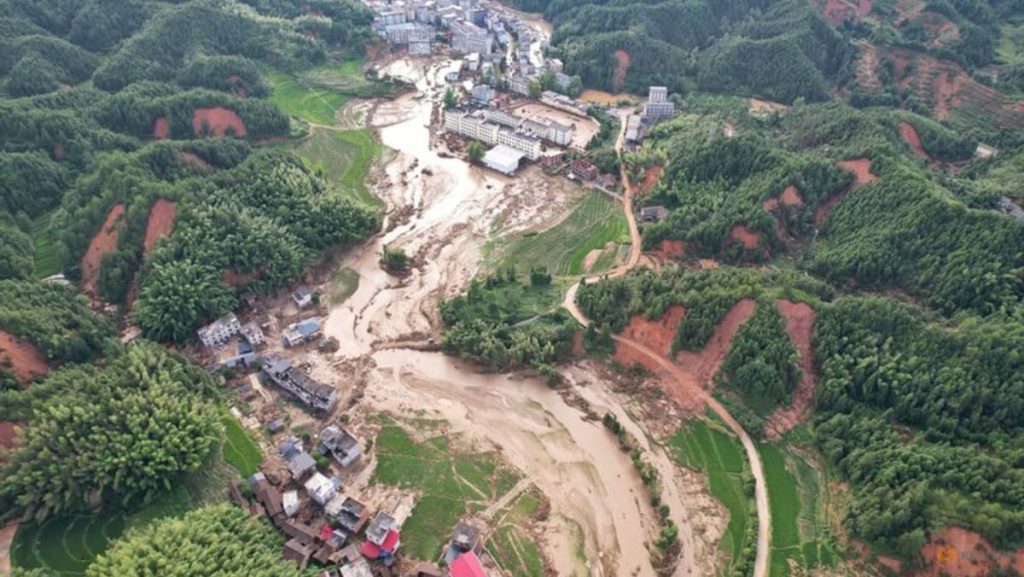In late July, heavy downpours hit China as a result of Typhoon Gaemi moving through the region after impacting the Philippines and Taiwan. This extreme weather event particularly affected the hilly, landlocked Hunan province, leading authorities to evacuate nearly 300,000 people and suspend public transport across eastern China. This was part of a larger pattern of extreme weather events that China has experienced over the summer, including heavy rains across the east and south, as well as heatwaves in the north. These weather patterns have been exacerbated by climate change, with China being the world’s biggest emitter of greenhouse gases.
In addition to the heavy rains in Hunan province, the northern province of Shaanxi experienced its own devastation when a highway bridge collapsed as a result of the heavy rain. This tragic event resulted in the loss of at least 38 lives, highlighting the serious consequences of extreme weather events. The increased frequency and intensity of such events are directly linked to climate change, with rising global temperatures causing shifts in weather patterns and leading to more severe storms and heatwaves. As the world’s largest emitter of greenhouse gases, China plays a significant role in driving climate change and must take responsibility for mitigating its impact on vulnerable communities.
The Chinese government has taken proactive measures to address the impacts of extreme weather events, including evacuating populations at risk and suspending public transportation to ensure the safety of citizens. These efforts are crucial in minimizing the harm caused by natural disasters and ensuring the resilience of communities in the face of such events. However, the scale and frequency of these extreme weather events underscore the urgent need for global action to address the root causes of climate change and reduce greenhouse gas emissions.
As the world’s largest emitter of greenhouse gases, China has a particular responsibility to lead by example in tackling climate change and reducing its carbon footprint. The country has made commitments to reduce its emissions and transition to renewable energy sources, but more action is needed to meet the targets set out in international climate agreements. By investing in clean energy technologies and implementing policies to reduce emissions, China can play a key role in mitigating the impacts of climate change and building a more sustainable future for all.
In conclusion, the extreme weather events that China has experienced in recent months are a stark reminder of the urgent need to address climate change and its impacts on vulnerable communities. From heavy rains and flooding to heatwaves and droughts, these events highlight the growing threat that climate change poses to our planet. As the world’s largest emitter of greenhouse gases, China has a crucial role to play in mitigating climate change and transitioning to a more sustainable future. By taking decisive action to reduce emissions and invest in clean energy, China can help lead the way towards a more resilient and environmentally friendly world for future generations.


